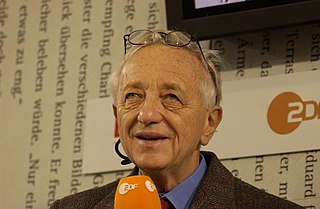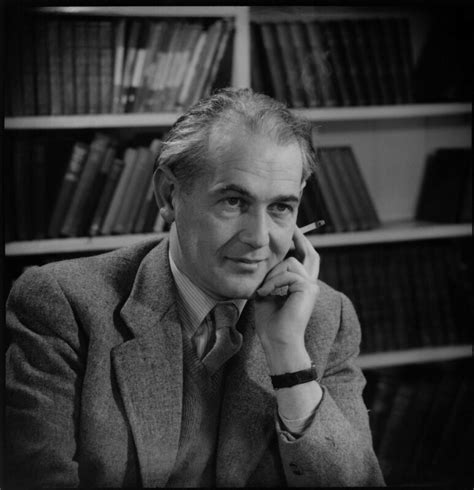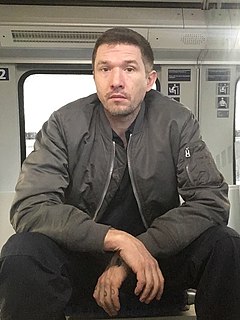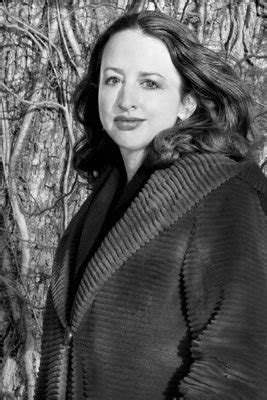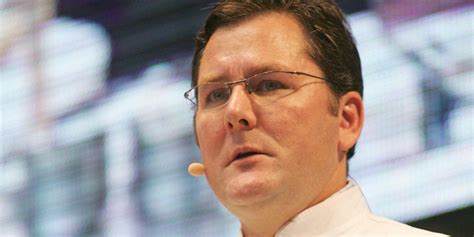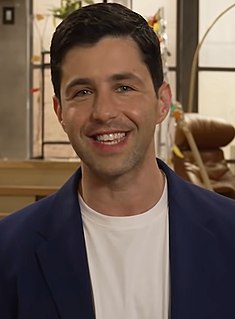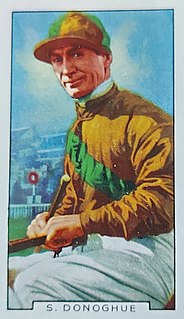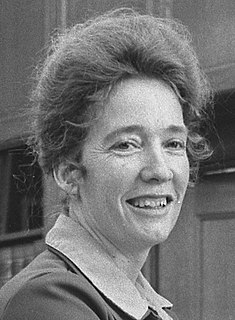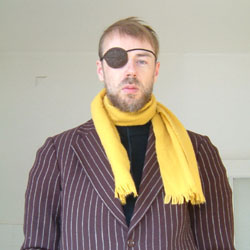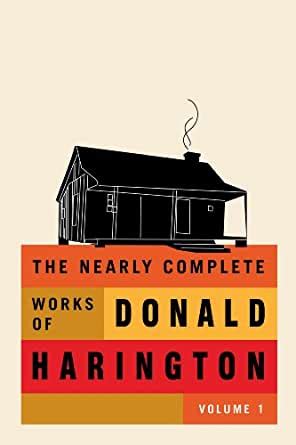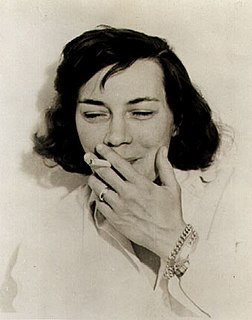Top 125 Kafka Quotes & Sayings - Page 2
Explore popular Kafka quotes.
Last updated on April 17, 2025.
I've always liked elliptical writing, whether it's Kafka or Paula Fox, and I'm often bored by writers who explain too much. I think that becomes journalism. Mostly I don't try to explain to readers who somebody is - I just write about the somebody. I'm thinking through ideas. And I have the sense that, if you're reading this, you have some interest.
In that chocolate side of town, in my blessed city of Sacramento, California - that was beginning of my death shudders, that's why Kierkegaard and Kafka began to make sense to me when I was very, very young - that radical sense fragility of life and inevitability of death; those trucks coming, if the truck came at a same time I was on the bridge, I was in the creek -my body would be the culinary delight of terrestrial worms.
I usually have Kafka biography in my bathroom. It's a book I can open at random and feel interested in immediately. It's really funny. With this book, since I'm opening it at random and immediately interested, I don't feel the need to read more than I want to read, in that there's not, like, a plot that leads me along. So I can stop whenever.
Jenny Offill's Dept. of Speculation resembles no book I've read before. If I tell you that it's funny, and moving, and true; that it's as compact and mysterious as a neutron; that it tells a profound story of love and parenthood while invoking (among others) Keats, Kafka, Einstein, Russian cosmonauts, and advice for the housewife of 1896, will you please simply believe me, and read it?
You're part of the human fabric of experience. You don't have to have cancer to write about cancer. You don't have to have somebody close to you die to understand what death is. Definitely, the more you live, the more experiences fall into your spectrum. As a writer, you must have been told: Write about what you know. But Kafka didn't. Gogol didn't. Did Shakespeare write only what he knew? Our own selves are limitless. And our capacity for empathy is giant.
In Kafka we have the modern mind, seemingly self-sufficient, intelligent, skeptical, ironical, splendidly trained for the great game of pretending that the world it comprehends in sterilized sobriety is the only and ultimate real one – yet a mind living in sin with the soul of Abraham. Thus he knows Two things at once, and both with equal assurance: that there is no God, and that there must be God.
Uncleanness is so much the attribute of officials that one could almost regard them as enormous parasites...In the same way the fathers in Kafka's strange families batten on their sons, lying on top of them like giant parasites. They not only prey upon their strength, but gnaw away at the sons' right to exist. The fathers punish, but they are at the same time the accusers. The sin of which they accuse their sons seems to be a kind of original sin.
Alongside Han Kang, there's only one other author I've chosen to translate so far - Bae Suah. Her work is radical both stylistically and politically, influenced by her own translation practice (she's translated the likes of Kafka, Pessoa, and Sadeq Hedayat into Korean). Her language is simply extraordinary.
I knew Richard E. Grant, and I went to him and said "Would you like to [play Kafka in the film]?" and he said yeah, and then suddenly I had all these people who were happy to come along. We got a little bit of money from Scottish Screen to pay for it. I got so many favors because I knew people in the business. I was in a remarkably good position. I got so many favors from people. I got the Monty Python technical people.
I was just interested in directing. So I just kept having a go at trying to write little scripts and get things together, and my wife just had a slip of the tongue and said, "Franz Kafka's It's A Wonderful Life" when she meant to say "Frank Capra's." There it is right there. That's a gag that we could make into something.
Directors who have inspired me include Billy Wilder, Federico Fellini, lngmar Bergman, John Ford, Orson Welles, Werner Herzog, Stanley Kubrick, Alfred Hitchcock, Francis Ford Coppola and Ernst Lubitsch. In art school, I studied painters like Edward Hopper, who used urban motifs, Franz Kafka is my favorite novelist. My approach to film stems from my art background, as I go beyond the story to the sub-conscious mood created by sound and images.
I really wouldn't call a lot of what's online "literature" since that word, to me, refers to a sub-genre of writing that belongs to the heavy-hitters, the canonical writers, Shakespeare, Dante, Milton, Dostoevsky, Kafka, and even Toni Morrison, George Saunders, Thomas Bernhard, Sebald, Borges, DFW, e.g.
First book was handwritten, then the printing press, now we've got our Kindles. To be able to push a button and a dictionary comes up. And then, at my age, that I can make the letters any size I want, and that I can carry all of William Shakespeare, all of Gogol, all of Franz Kafka in my handbag? You've got to love it.
The second volume of Reiner Stach's epic biography of Franz Kafka . . . [is] a tangle of counter-grained and often under-sourced life stories, but reading Stach's magnificent narrative (wonderfully translated by Shelley Frisch) straight through brings death, not life, to the forefront. Stach is a compulsively readable writer. . . . [A]s in the previous volume, the prose in The Years of Insight is supple and very appealingly complex--all of which, once again, is perfectly rendered by Frisch.
I think Kafka was right when he said that for a modern, secular, nonreligious man, state bureaucracy is the only remaining contact with the dimension of the divine; the impenetrable omnipotence of bureaucracy harbors is divine enjoyment. It is the performance of its very purposelessness that generates an intense enjoyment, ready to reproduce itself forever.
...testifying for Dr. Privitera...To these 19 cancer victims, the enforcement of (California) Health and Safety Code Sect. 1701.1, the denial of them medical treatment, albeit unorthodox, albeit unapproved by a state agency, must surely take on a Kafka-esque, a nightmare quality. No demonstrated public anger, no compelling interest of the state warrants an Orwellian intrusion into the most private of zones of privacy.
Kafka would surely have been impressed by the twin ambitions of the modern empathetic state: the need to set up hyper-regulatory bodies preventing you from doing anything yourself, while simultaneously endowing lavish pseudo-agencies to hand out leaflets listing a 1-800 number you can dial to order more leaflets.
Franz Kafka once said that happiness consists in having an ideal and not progressing towards it. If you did progress towards it, you'd be unhappy because you'd never be able to reach it. You can incrementally improve your life, but you never quite experience the glamour. You never quite get to your utopia, or whatever it is. And once you realize that you can be quite Buddhist about it, and say, "Well, okay, I'm just going to keep detached from it all."
Kafka often describes himself as a bloodless figure: a human being who doesn't really participate in the life of his fellow human beings, someone who doesn't actually live in the true sense of the word, but who consists rather of words and literature. In my view, that is, however, only half true. In a roundabout way through literature, which presupposes empathy and exact observation, he immerses himself again in the life of society; in a certain sense he comes back to it.
Do you realize that people don't know how to read Kafka simply because they want to decipher him? Instead of letting themselves be carried away by his unequaled imagination, they look for allegories - and come up with nothing but clichés: life is absurd (or it is not absurd), God is beyond reach (or within reach), etc. You can understand nothing about art, particularly modern art, if you do not understand that imagination is a value in itself.
In the critic's vocabulary, the word "precursor" is indispensable, but it should be cleansed of all connotations of polemic or rivalry. The fact is that every writer creates his own precursors. His work modifies our conception of the past, as it will modify the future." -- Essay: "Kafka and his Precursors
Don't bend; don't water it down; don't try to make it logical; don't edit your own soul according to the fashion. Rather, follow your most intense obsessions mercilessly. Only if you do that can you hope to make the reader feel every particle of what you, the writer, have known and feel compelled to share."---Forward to Kafka's Short stories
I yearn for the darkness. I pray for death. Real death. If I thought that in death I would meet the people I've known in life I don't know what I'd do. That would be the ultimate horror. The ultimate despair. If I had to meet my mother again and start all of that all over, only this time without the prospect of death to look forward to? Well. That would be the final nightmare. Kafka on wheels.
The Society of North American Magic Realists welcomes its newest, most dazzling member, Louis Maistros. His debut novel is a thing of wonder, unlike anything in our literature. It startles. It stuns. It stupefies. No novel since CONFEDERACY OF DUNCES has done such justice to New Orleans. If Franz Kafka had been able to write like Peter Straub, this might have been the result.
Kafka's writings often display an insidious power to describe a wholly secular and "factical" world in which the eerie or "unheimlich" elements gang up behind or beneath the ego's awareness and immerse it in a waking dream of something Other, an alien world-order similar to ancient irrationalist cultures (in transition from primitivism to civilized mythos-culture).
The sad fact is that I love Dickens and Donne and Keats and Eliot and Forster and Conrad and Fitzgerald and Kafka and Wilde and Orwell and Waugh and Marvell and Greene and Sterne and Shakespeare and Webster and Swift and Yeats and Joyce and Hardy, really, really love them. It’s just that they don’t love me back.
Oshima's silent for a time as he gazes at the forest, eyes narrowed. Birds are flitting from one branch to the next. His hands are clasped behind his head. "I know how you feel," he finally says. "But this is something you have to work out on your own. Nobody can help you. That's what love's all about, Kafka. You're the one having those wonderful feelings, but you have to go it alone as you wander through the dark. Your mind and body have to bear it all. All by yourself.
Kafka was a complex character in a complex historical era. In order to understand him, you have to do more than cite facts. It is necessary to connect the facts in a meaningful way. His relationship to Judaism, to his father, to women, to literature - all of this is interconnected; and there are decisive moments in his life, in which such interactions suddenly become visible and can be experienced in an almost sensuous manner. It is these moments above all that I try to narrate dramatically.
when ... I've thought of madness, it seems most easily explained to me as poetry in action. A life of symbol rather than reality. On paper one can understand Gulliver, or Kafka, or Dante. But let a man go about behaving as if he were a giant or a midget, or caught in a cosmic plot directed at himself, or in heaven or hell, and we feel horror - we want to disavow him to proclaim him as far removed as possible from ourselves.




